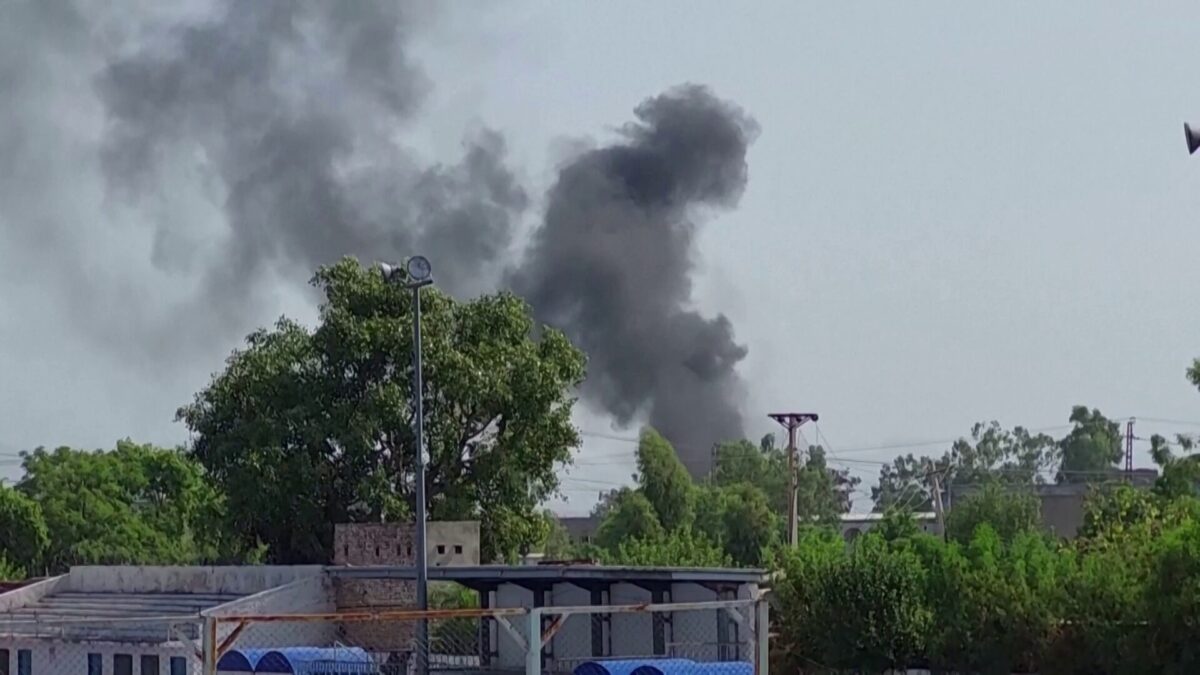In a dramatic escalation of cross-border hostilities, the Afghan Taliban launched coordinated attacks on Pakistani military installations along the Afghanistan–Pakistan border on the evenings of October 11th and 12th, resulting in significant casualties on both sides. According to classified information obtained from internal sources, these offensives were not merely retaliatory but part of a broader strategic pivot away from Pakistan and toward India.
The attacks targeted key Pakistani outposts in Kunar, Paktia, Nangarhar, and Kandahar provinces. Initial reports confirm that 49 Pakistani soldiers were killed and 32 wounded, while Taliban border forces suffered 15 fatalities and approximately 20 injuries. The Taliban’s Ministry of Defense reportedly authorized the operation in direct response to Pakistani airstrikes over Kabul on October 9th.
Those airstrikes, conducted by Pakistani fighter jets, were aimed at eliminating Mufti Asim Noor Wali Mehsud, the leader of Tehrik-e-Taliban Pakistan (TTP). The Pakistan Army claimed to have struck his residence and vehicle. However, the operation proved unsuccessful. Just 20 minutes after Pakistan’s announcement, TTP released an audio message from Mufti Noor Wali himself, broadcast from South Waziristan, denying the claim and asserting he was not in Kabul. In the same message, he called for intensified attacks against the Pakistan Army, which were swiftly carried out across the Khyber Pakhtunkhwa tribal belt beginning October 10th.
The Taliban’s border offensives were abruptly halted on October 12th following direct orders from Kandahar Governor Mullah Mohammad Shirin Akhund, who also serves as Mullah Hibatullah Akhundzada’s special envoy to Pakistan. Akhund reportedly urged normalization of relations between the two countries. However, the situation deteriorated further when the Pakistan Army launched retaliatory airstrikes in Spin Boldak District, Kandahar Province, targeting Taliban battalions and the Ismat Kakar Camp. Pakistan claimed the presence of Pakistani militants in the area—a claim later proven false.
A senior source within the Taliban’s Ministry of Defense revealed that the attacks were not solely in response to the Kabul airstrikes. Instead, they were part of a calculated effort to sever regional ties with Pakistan and strengthen military cooperation with India. The Taliban accuse the Pakistan Army of training ISIS fighters in Balochistan to destabilize Afghanistan and have cited ongoing ISI negotiations with anti-Taliban armed groups as further provocation.
In a significant geopolitical shift, the Taliban are now expanding their defense partnership with India. India has reportedly promised to assist the Taliban’s Ministry of Defense in securing Afghan airspace by supplying military equipment and reactivating dormant air defense systems at Bagram Air Base, Kabul International Airport, and Kandahar International Airport. While Bagram and Kabul already possess air defense infrastructure, these systems are currently non-operational. India’s commitment to reactivation marks a new chapter in regional military alignments.
This emerging axis between Kabul and New Delhi could reshape South Asia’s security landscape, especially as Pakistan’s influence wanes and its internal insurgency challenges mount. The Taliban’s accusations against Pakistan’s military and intelligence services—combined with India’s growing technical footprint—signal a volatile and rapidly evolving strategic environment.
Ajmal Sohail is a graduate in terrorism and extremism studies from both Leiden University in the Netherlands and Maryland University in the United States. He works in the meantime as an intelligence analyst and Counter-terrorism expert. He is the co-founder and co-president of the Counter Narco-Terrorism Alliance Germany, directing its intelligence and counter-terrorism portfolios.
This article reflects the author’s views and not necessarily those of Amu TV. The piece is based on the author’s analysis and includes references to publicly available reports and media coverage.
